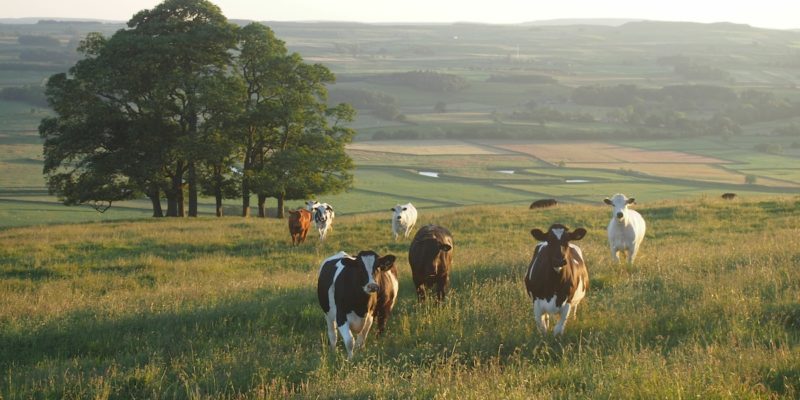Cows are being touted as the latest solution to plastic pollution
Researchers have found that bacteria living inside a cow’s gut can break down various types of plastic.
If William Shakespeare had used ballpoint pens to write his plays, we would still be digging up the bard’s spent ballpoint pens today – plastic is a notoriously difficult material to break.
However, researchers in Austria have made a discovery that could help deal with some of the millions of tons of single-use plastic that the world throws away annually.
Scientists at the University of Natural Resources and Life Sciences in Vienna discovered that bacteria living inside a cow’s rumen, one of the four compartments of its stomach, can digest certain plastics, including those used to make packaging. single use only. The next step is Identify the responsible microbes, so that they can be designed in laboratories.
The researchers suspected that rumen fluid could be helpful in breaking down plastics, because a cow’s diet typically contains natural plant polyesters.
So they got some from a slaughterhouse and incubated it with all three types of plastics: polyethylene terephthalate (PET), which is used to make beverage bottles; polybutylene adipate terephthalate (PBAT), typically found in compostable bags; and polyethylene furanoate (PEF), another biodegradable plastic used in compatible bags.
The results of the study, published in Frontiers in Bioengineering and Biotechnology, found that the three plastics could be degraded in “hours” by rumen fluid.

Plastic takes hundreds of years to break down, posing a problem for wildlife. Image: Brian Yurasits
“Due to the large amount of rumen that accumulates every day in slaughterhouses, it would be easy to imagine scaling up,” said Dr. Doris Ribitsch, who led the research.
However, the most ethical and sustainable next step is to identify the microbes responsible for breaking down plastic out of the thousands present in rumen fluid. These could then be grown in laboratories, rather than obtained from slaughterhouses.
As plastic pollution becomes more pervasive and problematic, the race begins to develop enzymes that can eat it. At the forefront of such research is the University of Portsmouth in England and the National Renewable Energy Laboratory in the United States. In September, his transatlantic team of scientists designed a ‘superzyme’ that is capable of breaking down PET plastic into its basic components in a matter of hours.
The discovery was described by scientists at the University of Portsmouth as “Another leap towards the fight against plastic waste”.
Calls for a global treaty to end ‘virgin’ plastic production
Scientists are calling for a global treaty to phase out virgin plastic production by 2040. In a special report in the journal Science, researchers have defended limits and controls.
“Plastics are increasingly found in all environmental media, including terrestrial ecosystems and the atmosphere, as well as human matrices, including the lungs and placenta,” the authors wrote.
“We therefore advocate for a new, legally binding international agreement that addresses the entire life cycle of plastics, from raw material extraction to legacy plastic pollution. Only by adopting this approach can efforts match the magnitude and transboundary nature of this growing problem and its social, environmental and economic impacts ”.
Lead Image: Jakob Cotton








